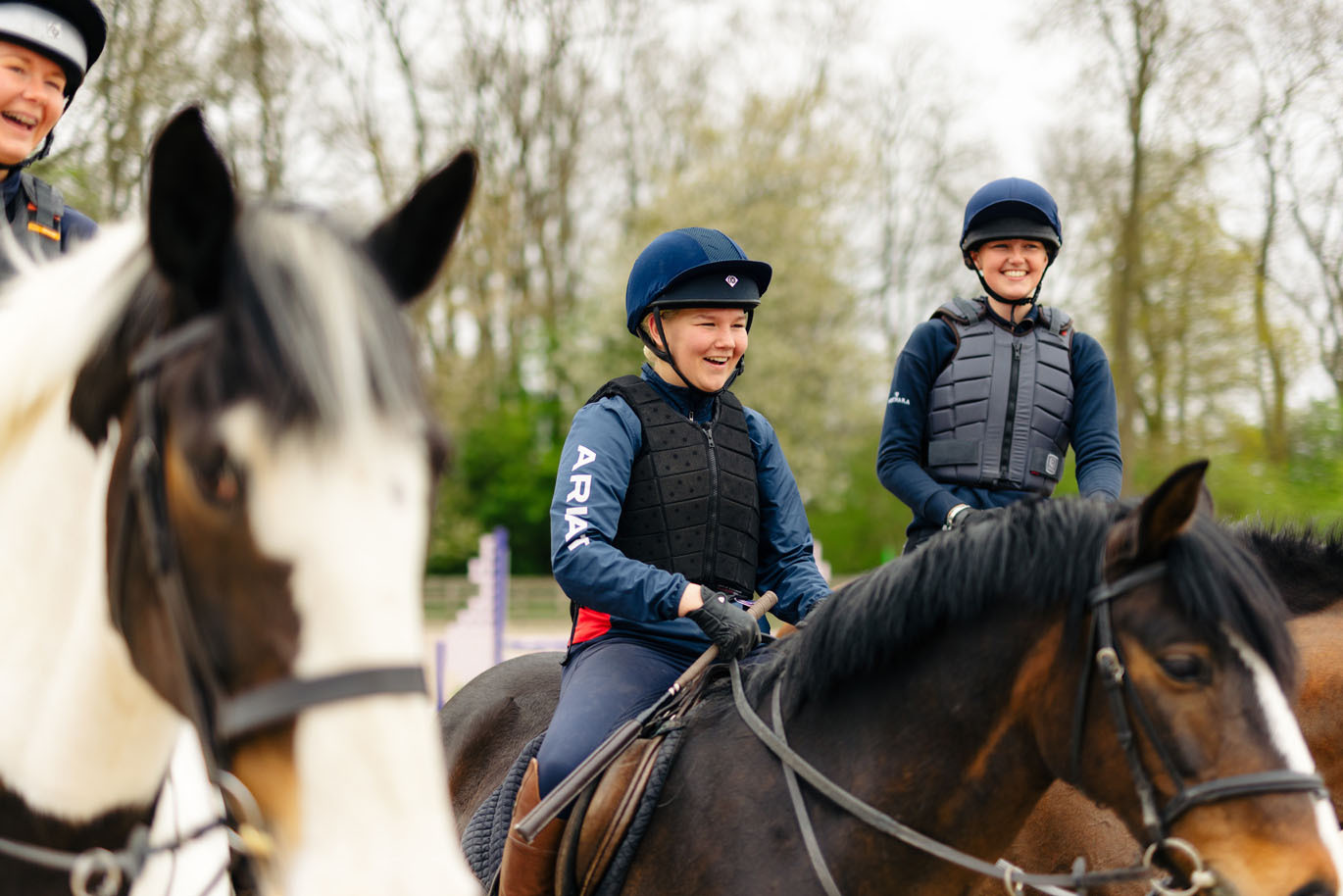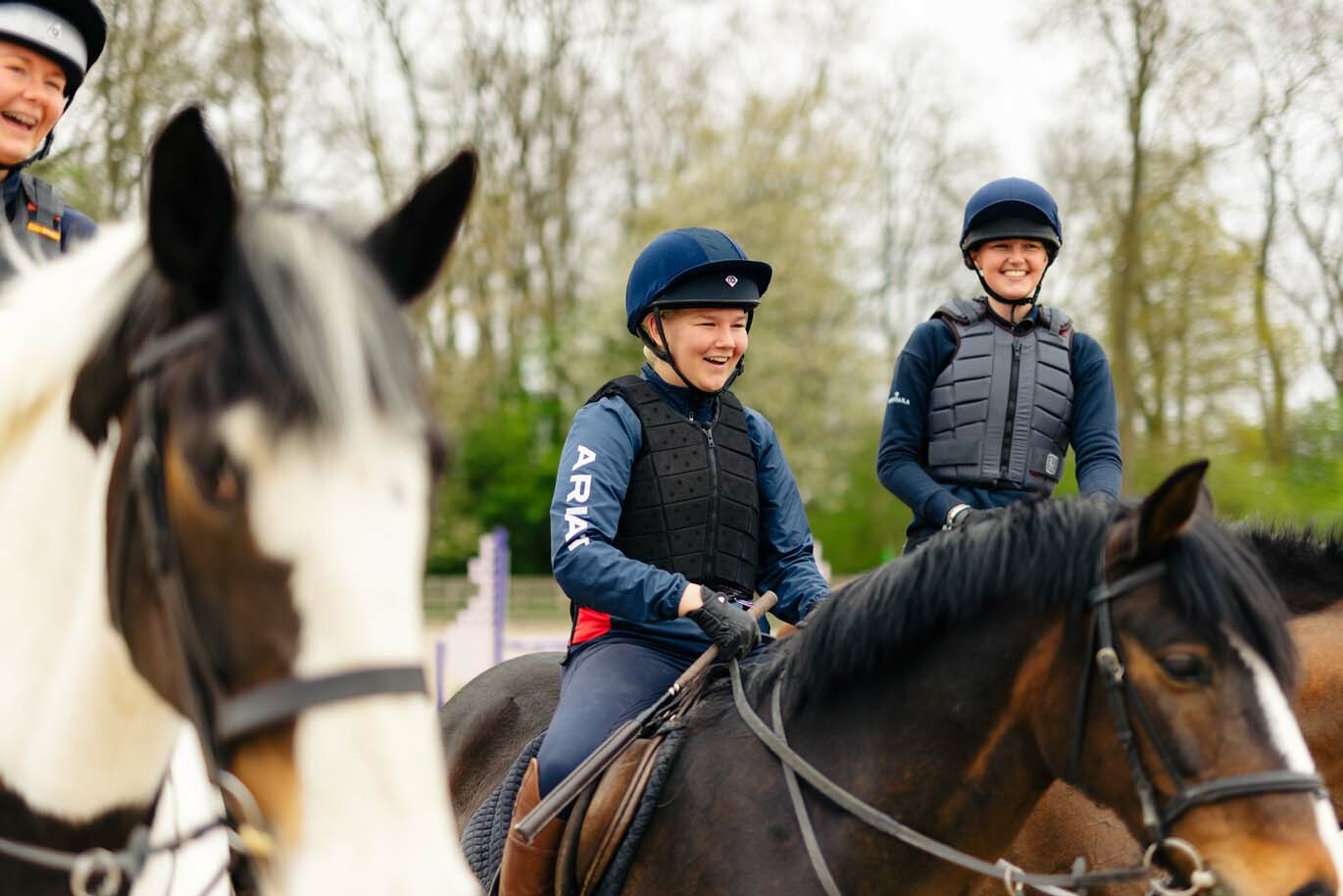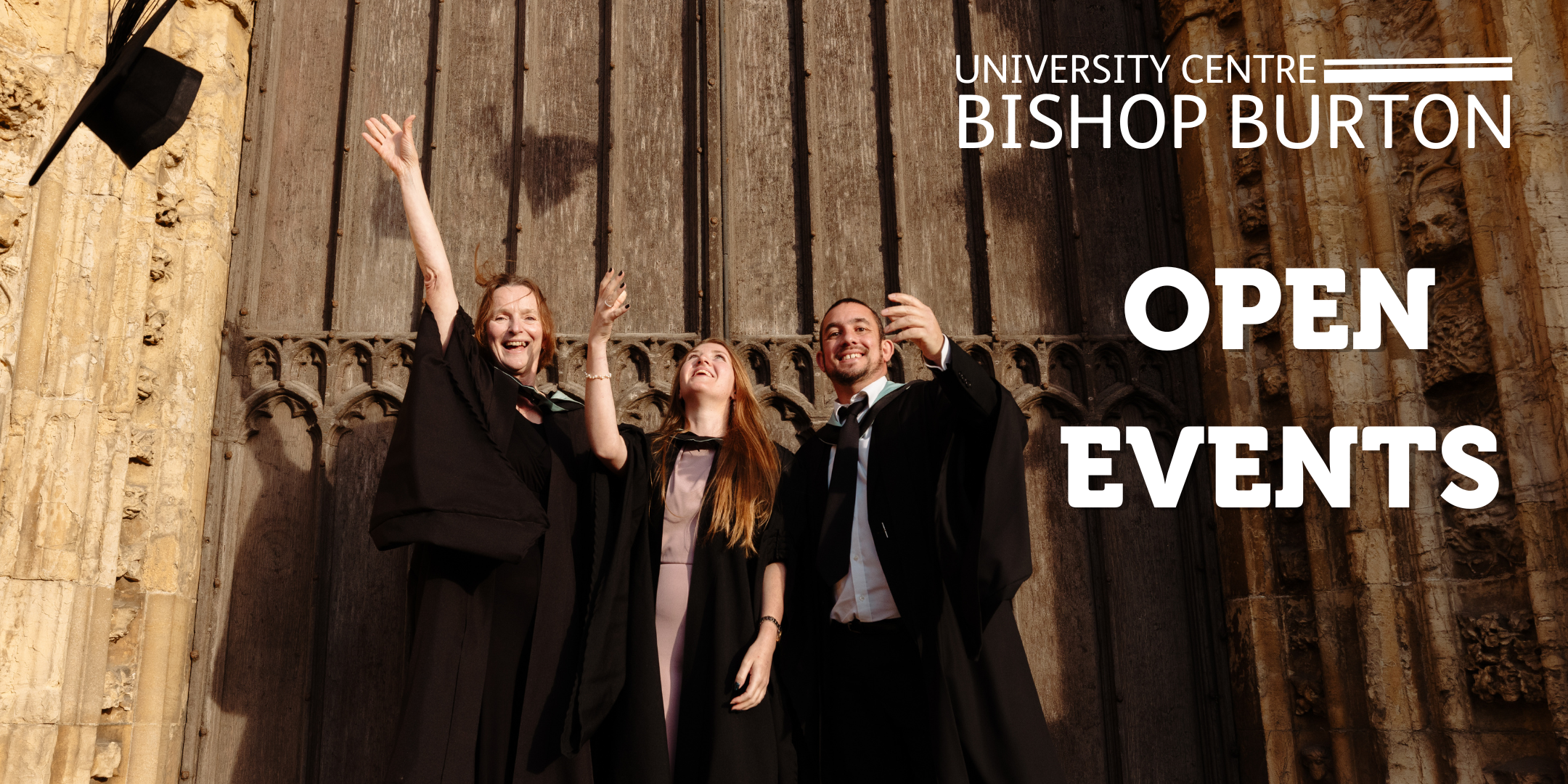
Jump to
Subject
Equine
Level
Bachelors Degree (Level 6)
Study Mode
Full-Time
Duration
3 years
Start Date
September 2026
UCAS Course Code
D428
The course
This programme is currently undergoing some enhancement to ensure that we remain innovative in practice with the fast-evolving changes in sector. Working with the University of Lincoln we want to ensure you get the best experience and opportunity to achieve as an employment-ready graduate. The programme title and content may therefore change. Full details of the newly refreshed programme will be available later in the year.
This programme explores the science of the horse, offering in-depth knowledge into biological systems to bring informed approaches to the management, care, training and welfare.
Whilst studying with us, you will be able to apply knowledge in practical settings across a range of modules, utilising our outstanding commercial equine centre. If you are curious by nature and enjoy problem solving, this programme is for you!
Through our excellent onsite laboratories, we are able to equip you with confident and competent skills and techniques across a range of sciences including histology, haematology, nutrition analysis, microbiology and molecular biology. Our graduates feel prepared to enter a breadth of laboratory roles and are inspired to continue learning and contributing to extending knowledge to aid future developments.
You will have the opportunity to undertake live projects and investigations, with a plethora of opportunities to develop ability to evaluate and critically analyse information to make informed decisions. Core modules in molecular biology and immunology, ensuring you are up-to-date with the latest scientific developments relating to health and disease, transferable to range of roles within the equine industry and beyond.
Course Information
- Encourage you to become critically informed, reflective and adaptable, preparing you to enter a wide variety of scientific
- roles.
- Help you to develop and acquire skills and knowledge in equine science to effectively practice in the area of equine science and technology.
- Encourage an inquiring, analytical and critical approach to appreciating and solving problems using modern technology.
- Develop your creativity, self-confidence and independent judgement.
- Encourage appropriate professional attitudes such as initiative and motivation, as benefits the needs of contemporary employers.
- Provide you with the appropriate skills and understanding to enter a diverse range of employment opportunities in the equine science sector in the UK and abroad.
Year 1
- Academic, Employment and Professional Skills
- Equine Health and Husbandry
- Equine Evolution and Domestication
- Equine Anatomy and Physiology
- Introduction to Research Skills
- Scientific Principles and Laboratory Skills
- Equine Nutrition
- Cell Biology
Year 2
- Research Methods and Analysis
- Equine Exercise Physiology
- Equine Behaviour and Welfare
- Cellular Processes and Biochemistry
- Enterprise and Entrepreneurship
- Equine Infectious Disease
- Equine Reproductive Physiology
Year 3
- Dissertation
- Equine Sport Injury and Diagnostic Techniques
- Immunology
- Option: Applied Equine Biomechanics or Equine Clinical Nutrition (Option modules will run where there are sufficient student numbers, otherwise an alternative option module may be offered.)
- Molecular Biology
- Contemporary Issues in Equestrianism
You will be required to have:
- A minimum of 96 UCAS points
AND
- GCSE English at grade 4 or above, or an equivalent qualification
- A suitable reference
UCAS points may be from qualifications such as A Levels, T Levels, BTEC Level 3 Extended Diplomas, Access to Higher Education Diplomas, and City and Guilds Advanced Technical Diplomas amongst others. Please use the UCAS Tariff points calculator to determine the UCAS points value of your qualifications.
Life and/or experience of non-traditional students will be taken into account when considering applications. The successful completion of an entry task may be required when considering applications without the required formal entry qualifications.
If your first language is not English, or a Tier 4 student visa to study is required and GCSE grade C/4 English or equivalent is not held, English language proficiency level such as International English Language Testing System (IELTS) 6.0 overall (with a minimum 5.5 in each skill) will need evidencing.
Advanced entry may be possible due to prior experience or certificated learning; applicants are invited to complete the accreditation of prior learning approval process.
This programme is delivered with a variety of learning and teaching approaches, utilising excellent onsite resources and extensive industry links for applied aspects.
For all modules, there are theory sessions aimed to deliver the core content and provide the underpinning knowledge. Lecture delivery is used to convey the basic concepts, and facilitate further expansion of such concepts by the students, through independent study. Delivery in this format is interspersed with activities such as group tasks, workshops and Q&A for re-affirming knowledge and comprehension.
Seminars are designed to complement theory sessions to reinforce those concepts delivered theoretically and focus on delivering a student-centred approach to enhance your independent learning outside of the classroom. Seminars may provide practical application of certain theory and knowledge as well as student research, role play and case study tasks.
This programme has a focus on practical ability in a laboratory setting, therefore many modules will have theory content supported by active development of laboratory skills utilising specialist equipment.
You will learn from experienced, supportive and motivated staff with both academic and industrial experience. Your learning will be supplemented by guest lectures and demonstrations from a range of visiting speakers and off-site trips, as well as access to our online learning environment.
Blended learning is a key support feature of the programme, with resources used in sessions and additional reading and material available via a virtual learning environment, which you can access at any time. The blended learning will include activities such as worksheets, discussion forums, journal clubs and assessment feedback through turnitin.
Contact time includes approximately 13 hours a week to include lectures, seminars, practicals, workshops, blended learning and academic development seminars.
You are also expected to carry out a significant amount of independent study in addition to contact time (approximately 25-30 hours a week). Independent study includes reading around the subject, preparing for tutorials and seminars, preparing for, and completing, module assessments and revision for examinations; forming an essential part of your learning journey.
- A tablet, smartphone, laptop or stationery to take notes in lectures and seminars.
- College-branded white laboratory coat.
- Riding hat to current (PAS015 with BSI kitemark) standard in a dark plain colour or silk.
- Plain, dark coloured trousers or breeches or jodhpurs, not jeans.
- Gloves for horse handling.
- Yard boots or wellington boots (NB: Boots are not permitted within the classroom, so a change of footwear will be required.)
- If you are undertaking any riding at Bishop Burton, you will also need: A body protector (BETA Level Three 2009. We do not permit air jackets in any day to day sessions), long riding boots or short boots with gaiters, schooling/jumping whip, long sleeved base layer or thin top, soft peaked hat or preferably jockey skull hat and silk to the standards listed above.
- Any educational visits/trips and enrichment activities will be additional to the course fees, students will be made aware of these optional visits and associated costs as required.
- Students can access free British Horse Society exam training onsite during their studies, the examination cost and BHS membership is an additional cost (exams can be undertaken onsite).
- On successful completion of the programme, you will have the opportunity to graduate at a ceremony wearing formal dress. The hire of the formal dress is an additional cost.
Validated by University of Lincoln
We are proud to collaborate with University of Lincoln on the validation of this course.
View the policies and procedures you would be agreeing to comply with by registering for this programme.
Financial Information
Find the full details of the fees associated with this programme and the financial support available.



